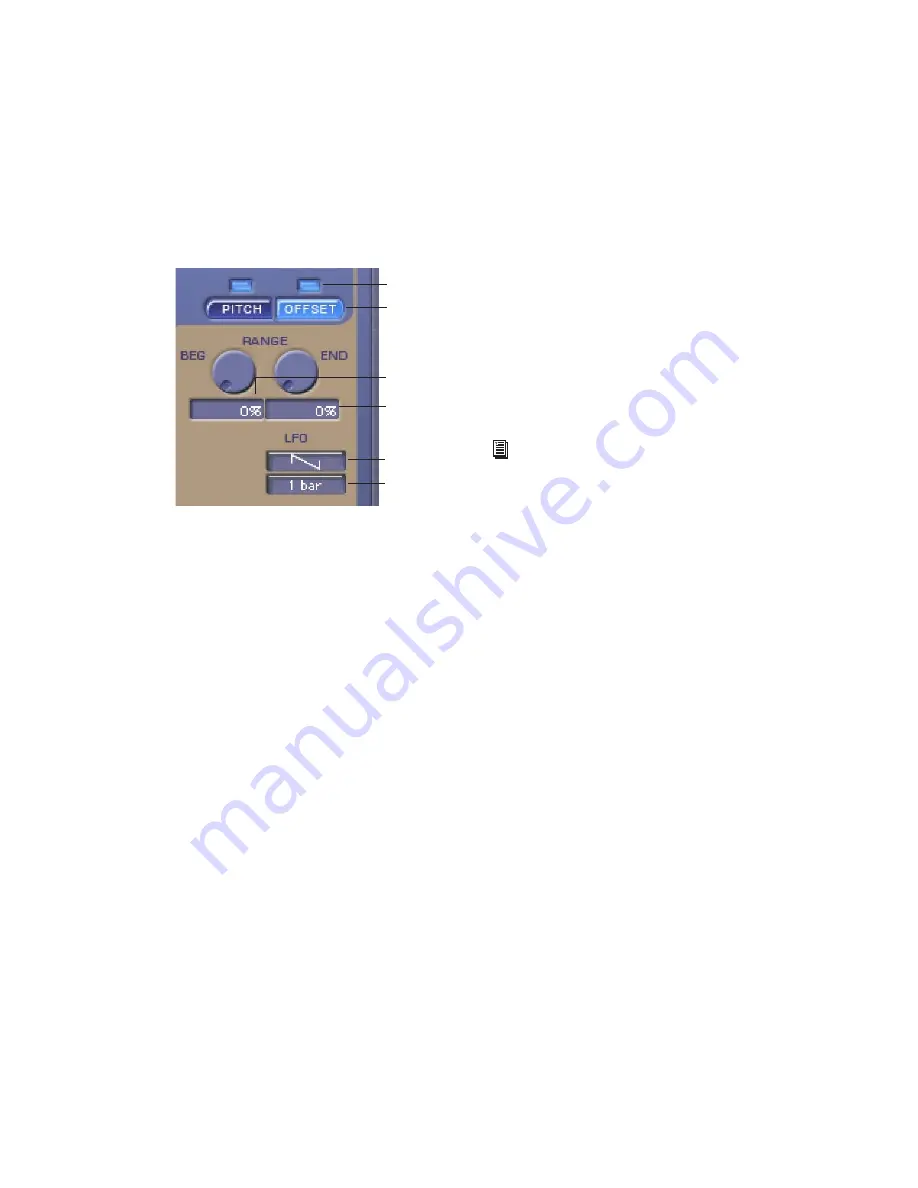
Chapter 4: Synchronic Parameters
33
BEG and END Range (0–100%)
The Offset Range
references a “Start” and “End” offset value that
is set using the Range controls.
Standard, Spin, and Stab Playback Offset
If Playback mode is set to Standard, Spin, or
Stab, Playback Offset determines where within a
slice playback should start. A slice normally
starts playback at the very first sample of the
slice. However, Synchronic lets you start play-
back of the slice at a point that is offset by some
percentage into a slice, thus creating some very
interesting effects. The Playback Offset can
range from 0% (the start of the slice) to 100%
(the end of the slice).
Stretch Playback Offset
If Playback Mode is set to Stretch, Playback Off-
set determines that amount of granular recy-
cling that occurs. Higher Offset percentages re-
sult in increased resonance as the beginning of
the slice is recycled more and more to fill the du-
ration of the slice.
Smear Playback Offset
If Playback Mode is set to Smear, Playback Offset
determines the amount of smearing that occurs
between adjacent slices.
Low Frequency Oscillator (LFO)
LFO Waveshape
Selects the modulation wave-
shape for Playback Offset.
LFO2 Duration (8 Bars, 4 Bars, 2 Bars, 1 Bar, Half
Note, Quarter Note)
Applies the LFO according
to the selected duration.
Assigning the Playback User Knobs
(PB1 and PB2)
(RTAS Only)
In Edit mode, you can assign the Playback User
Knobs to control any Playback Edit parameter.
User Knob assignments are made on a per preset
basis. This gives you a great deal of flexibility on
how you can control the Synchronic Playback
module in Performance mode.
Playback Offset settings
Offset Enable
Offset Select
button
LFO Waveshape
selector
Beginning Offset
(0–100%)
End Offset
(0–100%)
LFO Duration
selector
button
For more information on LFO Waveshape
and Duration, see “Low Frequency Oscilla-
tor (LFO)” on page 33.
Summary of Contents for Synchronic
Page 1: ...Synchronic Version 7 3 ...
Page 20: ...Synchronic Plug in Guide 16 ...
Page 50: ...Synchronic Plug in Guide 46 ...
Page 56: ...Synchronic Plug in Guide 52 ...
Page 62: ...Synchronic Plug in Guide 58 ...
















































